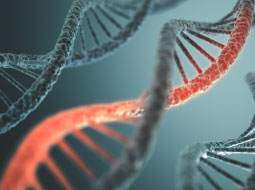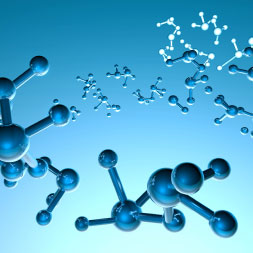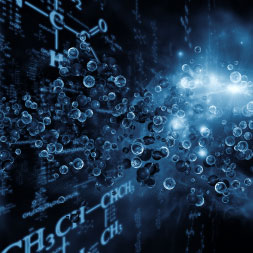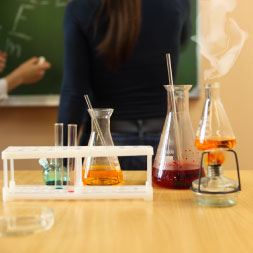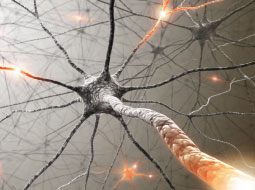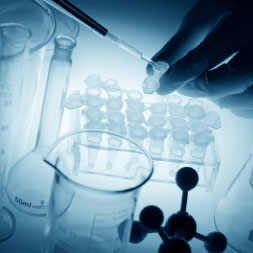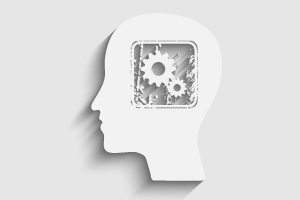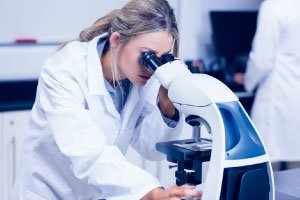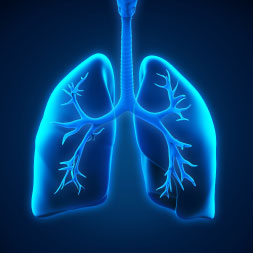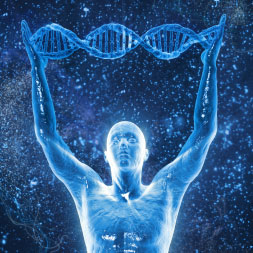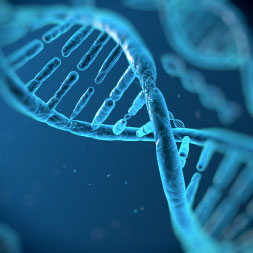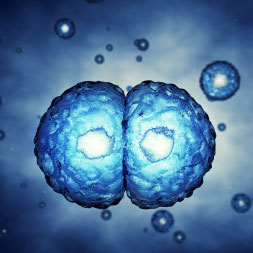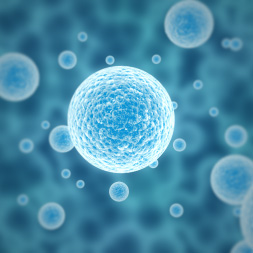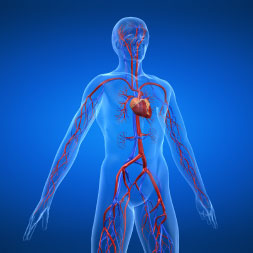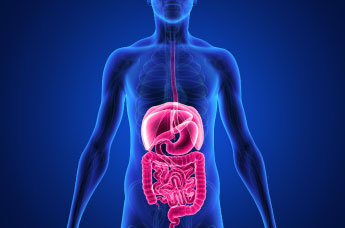Online courses directory (423)
This free online course in our Biology suite examines natural selection, patterns of evolution and molecular biology. It also explores DNA, protein synthesis and mutations and gene mapping. It is a practical guide for those working in life sciences who want to refresh their knowledge of biology or for any student of biology studying the subject at second level.
Gases behave differently from either solids or liquids, so there are different methods for understanding their behaviour. Having neither fixed volume nor shape gases are moulded entirely by the container in which they are held and from this it is possible to measure their behaviour by measuring properties such as pressure, volume, temperature and number of molecules. This free online chemistry course will introduce the concept of the ideal gas and the ideal gas law which is a good indicator of the behaviour of gases under many different conditions. The various components in the ideal gas law are explained in clear terms and you will see that by using equations you will understand how the impact of a change to one property, for example temperature, will impact on the other properties. Where there are multiple gases in a container you will be shown how to work out their partial pressure relative to the total pressure. This free online chemistry course will be of great interest to all students who wish to pursue a career in any of the sciences such as chemistry, physics, biology or geology, and to the individual learner who simply wants to learn and understand how gases behave.<br />
A molecule is a group of two or more atoms that bind together using chemical bonds. They may be from one or multiple elements and it is the ratio, or mass composition, of each molecule that gives the molecular compound its chemical characteristics. In this free online science course, you will learn about molecules and how they are composed of various elements, in mass, atoms and ratios. The course introduces the student to Avogadro’s number or the Mole, which is used to convert between atomic mass and grams, so that you will be able to work out ratios and weights of molecules. You will also learn how to balance chemical equations, and by balancing the reactants within equations, get viable chemical reactions. This branch of chemistry is known as Stoichiometry. The course will be of great interest to all students who wish to pursue a career in any of the sciences such as chemistry, physics, biology or geology, or the individual learner who simply wants to learn and understand how atoms form the molecules which make up all the material surrounding us. <br />
Matter exists in four states - solid, liquid, gas and plasma and it will change state depending on the temperature and pressure applied to the matter. In this free online chemistry course about states of matter you will learn about the characteristics of each of the four states and the amount of energy that can be added to or taken from a substance before it starts to change state. As all substances change state at different temperatures and pressures you will learn how to use phase change diagrams to plot the energy and pressure levels, the triple point, critical temperature, boiling and melting points associated with different substances. You will also learn in a step by step manner how to calculate the change in energy needed to move a substance along the state of matter spectrum. This free online chemistry course will be of great interest to all students who wish to pursue a career in any of the sciences such as chemistry, physics, biology or geology, or the individual learner who simply wants to learn and understand what is happening when matter changes from solid to liquid to gas.<br />
The amount of energy required to change the state of a substance depends on how strong or weak the bonds between the molecules are. For substances with strong bonds at standard temperature and pressure, like diamonds, it is extremely difficult to separate the molecules, whereas substances with weak bonds, like helium, remain in a gaseous form and do not condense into liquid or solid states. In this free online chemistry course you learn more about factors that affect the chemical nature of substances. You will learn why substances changing state can also be affected by mixing substances together. The course explains about using water as a solvent and mixing in different substances to see the effect on the boiling and melting points of the solution. This is followed by step by step examples of working out what the change in boiling or melting point will be based on the amount of solute added. This free online chemistry course will be of great interest to all students who wish to pursue a career in any of the sciences such as chemistry, physics, biology or geology, or the individual learner who simply wants to learn more about factors that affect the chemical nature of substances.<br />
This comprehensive biology course introduces a broad range of biology subjects including molecular biology, gene, cell biology, organic and inorganic compounds, experimental methods and designs, regulatory mechanisms in plants and animals, pathogens and parasites and more. This free online course builds on our Introductory Biology course. It is particularly suitable for any student of biology at second level, or anyone who wants to gain more knowledge and understanding of the biological world around us.
Introduction to Biology is a free introductory course on the science of the living world. These lessons teach learners of all ages about organisms, cells, nutrients (carbohydrates, proteins, vitamins and minerals) and the process of digestion. This free online course is an ideal study-aid and complement to classes for second level students and is valuable to parents who wish to help their children with their studies.
This free online learning course introduces the learner to the basic principles of Psychology from both a behavioural and biological perspective. The topics include classical and operant conditioning, the brain and the nervous system, stress and states of consciousness. All ALISON graduates are entitled to certification. This free Psychology course is an excellent complement to face-to-face classes and as a study guide or for those who would like to familiarise themselves with the fundamentals of Psychology.<br />
The free online Diploma in General Science course from ALISON is ideal for anyone who wants to gain a comprehensive knowledge and understanding of key subjects in biology, chemistry and physics. In biology you will covers subjects such as cell theory, genetics and evolution; in chemistry you will cover subjects such as atoms, molecules and the periodic table; and in physics you will cover subjects such as magnetism, electricity and sound. This Diploma course will be of great interest to those who want to further improve their knowledge and understanding of general science, and will greatly enhance your career prospects.<br />
Cellular respiration is a key concept to understand in biology as it involves obtaining energy from the nutrients organisms eat and the removal of waste products. It is a key biological process which is vital to all life forms, including humans. In this free online biology course you will learn about the chemical makeup of the energy that is stored, generally referred to as adenosine triphosphate (ATP), how this molecule works and how it is used in the respiratory process. You will also learn about glucose as it is the main source of energy, and the stages involved in cellular respiration from glycolysis through the Kerb’s cycle to the electron transport chain. You will learn how molecules are split to release energy through oxidization to produce ATP and waste products in the form of water and carbon dioxide. This free online biology course will be of great interest to all students who wish to pursue a career in sciences such as biology, biochemistry, medicine, pharmacy or the individual learner who simply wants to learn more about how we convert our food into energy.<br />
Heredity is the genetic transmission of characteristics from parent to offspring. Many of these characteristics, particularly the dominant ones, have a physical manifestation like hair colour or colour blindness, but other traits can skip generations until the right combination of genes allows a regressive trait to appear. This free online course about heredity will look at how traits are passed on, why some traits form part of our physical makeup and why we only carry others in our genes but never express them. You will learn how to work out ratios of traits that are present in both the genotype and phenotype using the Punnett Square method and the Hardy-Weinberg Principle. You will also learn how bacteria change their DNA over time and how this impacts on human health. Similarly you will learn how viruses replicate and how they can change human DNA. This free online heredity course will be of great interest to all learners who wish to pursue a career in sciences such as biology, medicine, zoology or botany and to any individual who simply wants to learn more about how traits are inherited and changed.<br />
It is over sixty years since the structure of DNA was first discovered by Watson and Crick. Since then work in genetics and gene technology has expanded to the point where the entire human genome has been sequenced, and there is now hope of being able to cure diseases using gene therapy. There is also on-going work in the area of modifying plant DNA to produce pest-resistant crops that give bigger harvests for more food. Today, people need a thorough knowledge and understanding of genetics and gene therapy so that they can make up their own minds as to the potential benefits and drawbacks of what this field of science can offer us. In this free online course you will discover what genes do and explore and come to understand reference terms such as meiosis and mitosis. The course also covers evolutionary aspects of DNA and the genome. You will also learn about gene technology which includes gene testing, gene therapy and the controversial area of genetic modification in plants. This course will be of great interest to professionals working in the areas of biology, medicine and development, to learners who would like a career in the areas of genetics and gene technology, and to anyone interested in understanding the basic area of science that underpins all living existence.<br />
This course is an investigation of affective priming and creation of rigorously counterbalanced, fully computerized testing paradigm. Includes background readings, study design, counterbalancing, study execution, data analysis, presentation of poster, and final paper.
Life as an emergent property of networks of chemical reactions involving proteins and nucleic acids. Mathematical theories of metabolism, gene regulation, signal transduction, chemotaxis, excitability, motility, mitosis, development, and immunity. Applications to directed molecular evolution, DNA computing, and metabolic and genetic engineering.
This course serves as an introduction to the structure and function of the nervous system. Emphasis is placed on the cellular properties of neurons and other excitable cells. Topics covered include the structure and biophysical properties of excitable cells, synaptic transmission, neurochemistry, neurodevelopment, and the integration of information in simple systems and the visual system.
Cell division and replication are fundamental biological processes that occur in all organisms. This free online course about cell division will explain the complex processes of cell division in detail. You will learn about mitosis and meiosis and the phases that occur in each of these processes. You will learn that in the early stages of development embryonic cells can generate all cell types in the body. You will also look at how cells divide and replicate allowing us grow and repair body tissues, and if damage occurs, how some cells can replicate faster than surrounding cells to form tumours. This free course will be of great interest to all students who wish to pursue a career in the sciences, medicine, pharmacy, nursing, biology or biodiversity or the individual learner who simply wants to learn more about mitosis, meiosis and their role in cell division and replication.<br />
Cell physiology is the branch of science that studies the structure and function of individual cells. Our increasing knowledge and understanding of cellular mechanisms and processes have led to great advances in all areas of biology and medicine. In this free online physiology course you will be introduced to the main topics in cell physiology such as the major components of a typical animal cell. You will learn about the mechanisms behind cell growth and multiplication, about the movement of substances into and out of cells, how energy is processed within the cell, and how and why cells maintain an electrical charge across their membranes called membrane potentials. This free online cell physiology course will be of great interest to all healthcare professionals who would like to learn more about the structure and function of cells, and to all students of biology and medicine who would like a greater knowledge and understanding of the mechanisms and processes involved in cell physiology.<br />
The human cardiovascular system is made up of the heart, blood vessels and blood supply. These act as one system to supply vital oxygen, nutrients, and hormones to tissues and remove carbon dioxide and metabolic waste products. This system also plays a central role in stabilizing body temperature and pH levels, as well as maintaining homeostasis. In this free online cardiovascular anatomy and physiology course, the learner will explore the structure and functions of the cardiovascular system. The course explains the composition of blood and provides an overview of how blood is used for transport and energy mobilization. It also outlines how the blood responds to haemorrhage and is involved in maintaining the correct body temperature. The course then examines blood vessels, explaining the function and location of arteries, veins and capillaries. Finally, it covers the anatomy of the heart, describing the structure of the chambers of the heart, the cardiac valves and the heart walls. It also describes the pericardium, the NAVL and the fibrous skeleton of the heart. This free online cardiovascular anatomy and physiology course will be of great interest to professionals in the health care sector who would like a greater knowledge and understanding of the human cardiovascular system. Students of medicine and biology who would like to study the structure and function of the heart, blood vessels and blood supply, which make up this very important anatomical system, will also find this course of great help.<br />
The human body cannot generate energy itself and so must obtain it from external sources. Energy from the sun is captured by plants, which in turn are eaten by animals. We humans use these plants and animals as food sources but, in order to obtain the energy we require from them, our food must be broken down into smaller molecules that the body can process. This is accomplished by a complex series of organs known as the digestive system. This free online human physiology course provides a clear introduction to the human digestive system. In this course you will learn how energy is obtained from food and be introduced to the different food types and vitamins. The course looks at the stages involved in ingestion and swallowing, describing how the stomach is designed for food storage and the initial processing of food. How the small and large intestines are structured to facilitate the digestion and absorption of nutrients is also examined. The course also provides an overview of the elimination of the waste products of digestion from the body. It outlines the special roles played by the liver and pancreas in the secretion of digestive enzymes. The mechanisms used by the digestive system to protect the body from infection are covered. This includes looking at the tonsils and other lymphoid tissue in the small and large intestine and explaining how the mammary gland protects the breastfeeding baby from infection. This free online human physiology course will be of great interest to healthcare professionals who would like a greater understanding of the human digestive system and its importance in human physiology, and to students of biology, medicine and nursing who would like to gain a greater knowledge and understanding of the structure and function of the human digestive system. <br />
This course uses neuroscience methods to study the cognitive development of human infants and children. Case studies draw from research on face recognition, language, executive function, representations of objects, number and theory of mind.
Trusted paper writing service WriteMyPaper.Today will write the papers of any difficulty.


